|
Books Should Be Free Loyal Books Free Public Domain Audiobooks & eBook Downloads |
|
|
Books Should Be Free Loyal Books Free Public Domain Audiobooks & eBook Downloads |
|
Short Stories |
|---|
Book type:
Sort by:
View by:
|
By: Willa Sibert Cather (1873-1947) | |
|---|---|
 The Troll Garden and Selected Stories
The Troll Garden and Selected Stories
| |
 Collection Of Stories, Reviews And Essays
Collection Of Stories, Reviews And Essays
Stories and essays by Willa Cather | |
By: William C. Scully (1855-1943) | |
|---|---|
 Stories by English Authors: Africa
Stories by English Authors: Africa
| |
By: William Carroll | |
|---|---|
 Solomon's Orbit
Solomon's Orbit
| |
By: William Cowper Brann (1855-1898) | |
|---|---|
 Complete Works of Brann, The Iconoclast, Volume 12
Complete Works of Brann, The Iconoclast, Volume 12
William Cowper Brann earned the nickname “The Iconoclast” by fearlessly attacking established beliefs and institutions which he thought to be pompous and self-serving. He settled in the wild and wooly West Texas town of Waco in the late 1800s as a newspaper man - first as a writer and then as owner of newspaper he named “The Iconoclast”. During this period, Catholics and Protestants were duking it out over the soul of Texas and there was even further sectarian strife among Protestants. Brann wrote prolifically and aired his Politically Incorrect views with vigor and colorful language... | |
By: William Dean Howells | |
|---|---|
 Christmas Every Day and Other Stories Told for Children
Christmas Every Day and Other Stories Told for Children
Five short delightful stories for children, told in the voice of "the papa" to "the girl" and "the boy." William Dean Howells (March 1, 1837 – May 11, 1920) was an American realist author and literary critic. Nicknamed "The Dean of American Letters", he was particularly known for his tenure as editor of the Atlantic Monthly as well as his own prolific writings, including the Christmas story "Christmas Every Day" and the novel The Rise of Silas Lapham. (Reader’s Note for story 3: A pony engine is a small locomotive for switching cars from one track to another.) | |
 Literature and Life (Complete)
Literature and Life (Complete)
| |
 Shapes that Haunt the Dusk
Shapes that Haunt the Dusk
| |
 Quaint Courtships
Quaint Courtships
| |
 Buying a Horse
Buying a Horse
| |
 The Daughter of the Storage And Other Things in Prose and Verse
The Daughter of the Storage And Other Things in Prose and Verse
| |
 A Pair of Patient Lovers
A Pair of Patient Lovers
| |
 Standard Household-Effect Company, the (from Literature and Life)
Standard Household-Effect Company, the (from Literature and Life)
| |
 Staccato Notes of a Vanished Summer (from Literature and Life)
Staccato Notes of a Vanished Summer (from Literature and Life)
| |
By: William F. Nolan (1928-) | |
|---|---|
 Of Time and Texas
Of Time and Texas
| |
 Small World
Small World
| |
By: William Gerken | |
|---|---|
 Stopover
Stopover
| |
By: William Henry Giles Kingston | |
|---|---|
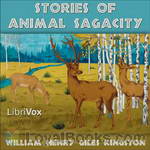 Stories of Animal Sagacity
Stories of Animal Sagacity
300+ short stories of how smart and savvy various individual animals have been seen to be, and in most cases a little moral is drawn from the story. | |
 The Ferryman of Brill and other stories
The Ferryman of Brill and other stories
| |
By: William Hope Hodgson (1877-1918) | |
|---|---|
 Carnacki, The Ghost Finder
Carnacki, The Ghost Finder
Thomas Carnacki was a detective of the supernatural, created for a series of short stories by Wiliam Hope Hodgson. Hodsgon, also a noted photographer and bodybuilder, might have created more stories for this intrepid sleuth of the occult, but he unfortunately died at the youthful age of 40 in World War I. (Introduction by Samanem) | |
By: William J. Smith | |
|---|---|
 The Last Straw
The Last Straw
| |
By: William le Queux (1864-1927) | |
|---|---|
 Stolen Souls
Stolen Souls
This is a collection of 14 of William le Queux' best mystery stories. | |
By: William M. Lee | |
|---|---|
 Junior Achievement
Junior Achievement
| |
By: William MacKay | |
|---|---|
 Unvarnished Tales
Unvarnished Tales
This book is a short selection of varied fictional tales. They must have been what the author wished for them to be and certainly perfect for the time in which they were written. | |
By: William P. Salton | |
|---|---|
 Operation Lorelie
Operation Lorelie
| |
By: William Patten (1868-1946) | |
|---|---|
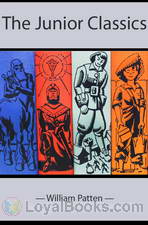 The Junior Classics
The Junior Classics
The purpose of The Junior Classics is to provide, in ten volumes containing about five thousand pages, a classified collection of tales, stories, and poems, both ancient and modern, suitable for boys and girls of from six to sixteen years of age. | |
 Short Story Classics (American)
Short Story Classics (American)
MANUAL OF SURGERY, OXFORD MEDICAL PUBLICATIONSBY ALEXIS THOMSON, F.R.C.S.Ed.PREFACE TO SIXTH EDITION Much has happened since this Manual was last revised, and many surgical lessons have been learned in the hard school of war. Some may yet have to be unlearned, and others have but little bearing on the problems presented to the civilian surgeon. Save in its broadest principles, the surgery of warfare is a thing apart from the general surgery of civil life, and the exhaustive literature now available on every aspect of it makes it unnecessary that it should receive detailed consideration in a manual for students... | |
By: Winfrid Herbst | |
|---|---|
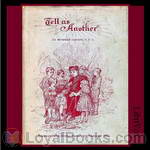 Tell Us Another! Stories That Never Grow Old
Tell Us Another! Stories That Never Grow Old
A collection of 65 little stories for the Catholic child (and adult), designed to captivatingly teach the truths and morals of the faith. This is the companion volume to "Just Stories" by the same author. | |
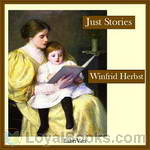 Just Stories: The Kind That Never Grow Old
Just Stories: The Kind That Never Grow Old
Good Books are wise counselors. They point out the right way in the devious paths of life. Have we not often stood at the juncture of two roads, the one of righteousness and the other of unfaithfulness, and was it not then that some golden little book acted the part of an opportune adviser and directed us down the highway of truth? Is there one of us who can truthfully say that good books have not been his loyal and trustworthy helpers, his vigilant guardians in life's intricate ways? This unpretentious little book of goodness stories, a companion volume to "Tell Us Another," must speak for itself... | |
By: Winston K. Marks (1915-1979) | |
|---|---|
 The Deadly Daughters
The Deadly Daughters
| |
By: Wright, Orville and Wilbur (1871-1948 / 1867-1912) | |
|---|---|
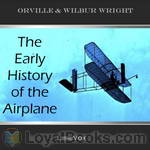 The Early History of the Airplane
The Early History of the Airplane
The Brothers Orville (1871 - 1948) and Wilbur (1867 – 1912) Wright made the first controlled, powered and sustained heavier-than-air flight, on 17th December 1903. They were not the first to build and fly aircraft, but they invented the controls that were necessary for a pilot to steer the aircraft, which made fixed wing powered flight possible. The Early History of the Airplane consists of three short essays about the beginnings of human flight. The second essay retells the first flight: "This... | |
By: Zane Grey (1872-1939) | |
|---|---|
 The Redheaded Outfield
The Redheaded Outfield
| |
By: Zofia Nałkowska (1884-1954) | |
|---|---|
 Selected Polish Tales
Selected Polish Tales
| |
By: יוסף חיים ברנר Yosef Haim Brenner (1881-1921) | |
|---|---|
 עולה (Injustice), with excerpt from The Escaping Club
עולה (Injustice), with excerpt from The Escaping Club
This is a bilingual project. The first part, in Hebrew, is the story "Injustice" by Yosef Haim Brenner, written following the conquest of Palestine by the British troops during WWI. The story takes place on the Turkish side of the dividing line between the combating forces. An escaped British prisoner of war had taken shelter among a group of Jewish workers, who, following a heated discussion, turned him over to the Turkish army. The second part of this project, in English, is a chapter in the book "The Escaping Club," written in 1922 by the same British prisoner of war, the aviator A. J. Evans, who gave his account of the same event. | |